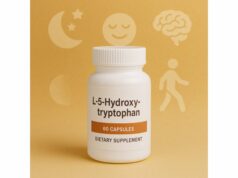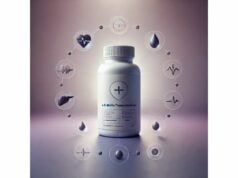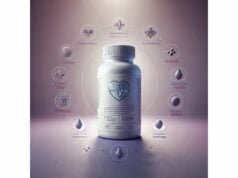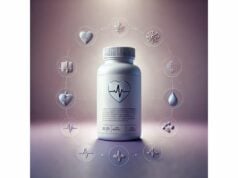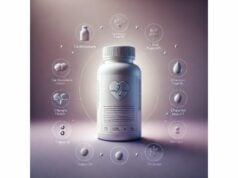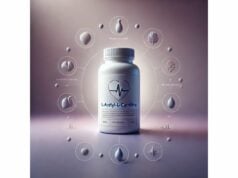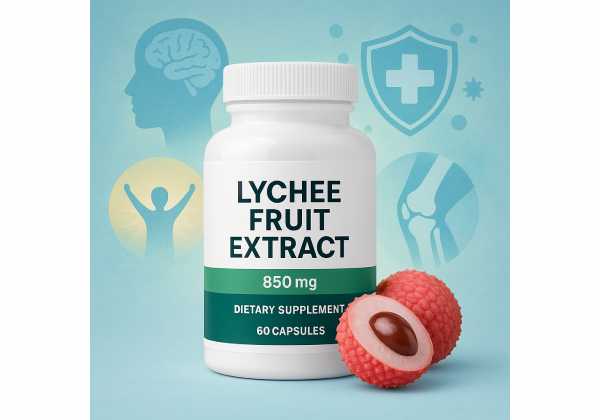
Lychee fruit extract is best known for a standardized form called “oligomerized polyphenols” (often marketed as Oligonol), made from Litchi chinensis. It concentrates small, easily absorbed flavanols—primarily catechin and epicatechin oligomers—along with ancillary phenolics found in the fruit’s red pericarp. Early research suggests potential support for abdominal fat reduction, better peripheral circulation in people sensitive to cold hands and feet, and aspects of muscle health in older adults. Like any plant extract, benefits depend on dose, standardization, and product quality. This guide explains what lychee fruit extract is, how it may work, practical ways to use it, who is most likely to benefit, and who should avoid it. You will also find clear dosage ranges, safety watch-outs, and label tips so you can choose confidently. While promising, lychee extract is not a shortcut; think of it as a supportive addition to nutrition, sleep, and physical activity—not a substitute for them.
Quick Overview
- May support visceral fat reduction and peripheral circulation in select adults at studied doses (typically 200 mg/day).
- Typical supplemental range: 100–200 mg/day of oligomerized lychee polyphenols, taken with meals.
- Possible side effects are usually mild (GI upset, headache), but allergic reactions can occur in people sensitive to lychee or related fruits.
- Avoid use if pregnant or breastfeeding, in children, or if you have poorly controlled diabetes without clinician guidance.
Table of Contents
- What is lychee extract and how it works
- Does it really help? Key benefits and who sees them
- How to take it: dosage, timing, and combinations
- Who should use it and who should avoid it
- Safety, side effects, and interactions
- How to choose a quality lychee extract
What is lychee extract and how it works
Lychee fruit extract is a concentrated preparation from the edible aril and, more often, the red skin (pericarp) of Litchi chinensis. The pericarp is especially rich in proanthocyanidins—flavanol polymers that can be converted into smaller “oligomerized” units. This matters because smaller polyphenols are more readily absorbed, reach higher plasma concentrations, and may interact with metabolic and vascular targets at practical supplemental doses.
Commercially, the best-studied form is a standardized “oligomerized lychee polyphenol” complex. It typically contains a high proportion of low-molecular-weight catechin and epicatechin oligomers (monomers, dimers, and trimers), with minimal high-molecular-weight polymers. Some products are manufactured by controlled depolymerization of lychee procyanidins, sometimes with tea catechins used as reaction partners. The goal is consistent bioavailability—so the capsule you take this month behaves like the one you took last month.
Mechanistically, lychee polyphenols appear to act along three broad pathways:
- Metabolic regulation: In preclinical and early human research, lychee-derived oligomers influence lipid handling and glucose homeostasis. Proposed mechanisms include activation of AMP-activated protein kinase (AMPK), improved mitochondrial efficiency, and modulation of gene networks that govern fatty acid oxidation versus lipogenesis. These changes may reduce ectopic fat (the “wrong-place” fat that accumulates in the liver and around abdominal organs) and improve markers tied to cardiometabolic risk.
- Vascular and microcirculatory effects: Polyphenols can enhance endothelial nitric oxide (NO) bioavailability by reducing oxidative stress and dampening NADPH oxidase activity. Practically, this may manifest as better peripheral blood flow and warmer extremities during cold exposure in people who report “cold sensitivity.”
- Inflammation and recovery: Select trials and lab studies show reductions in pro-inflammatory cytokines (e.g., IL-6, TNF-α) and modulation of NF-κB activity following lychee oligomer intake. This may support exercise recovery and a favorable inflammatory milieu, which can indirectly help body composition and “muscle quality,” especially as we age.
What lychee extract is not: it is not the same as eating large amounts of raw lychees or consuming products made from unripe fruit. The extract concentrates specific polyphenols and is used at controlled doses. Eating unripe lychee on an empty stomach has been associated with hypoglycemic illness in malnourished children; that scenario is different from standardized, adult-dose supplementation.
Finally, lychee extract is adjunctive. It can tilt physiology in helpful directions—visceral fat pathways, microcirculation, cellular stress—but it works best alongside calorie awareness, nutrient-dense meals, strength training, and adequate sleep. Expect support, not miracles.
Does it really help? Key benefits and who sees them
When evaluating plant extracts, ask two questions: (1) What outcomes were studied (and in whom)? (2) Are the doses and formulas comparable to what you can buy? Lychee fruit extract performs best when those boxes are checked.
Abdominal (visceral) fat in overweight adults. Randomized, placebo-controlled research using 200 mg/day of oligomerized lychee polyphenols over approximately 12 weeks has reported meaningful reductions in visceral fat area (measured by imaging) compared with placebo in overweight participants. Visceral fat is the metabolic “hot zone” surrounding abdominal organs and correlates more strongly with cardiometabolic risk than scale weight alone. People who stand to benefit most are those with central adiposity, relatively stable weight, and an otherwise consistent diet and activity pattern during the study window. Effects are modest but clinically relevant when layered onto sensible habits.
Peripheral circulation and cold sensitivity. In adults who complain of unusually cold hands and feet (a common quality-of-life issue), short-term supplementation with a standardized lychee polyphenol complex improved skin temperature and fingertip blood flow responses following a cold challenge in a controlled environment. Benefits appeared within two weeks in a randomized, blinded design. If you maintain normal thyroid function and iron status but still struggle with “cold extremities,” lychee extract may be worth testing during colder months.
Muscle function in older adults. Aging brings sarcopenia (loss of muscle mass and quality) and anabolic resistance. Trials in middle-aged and older adults using 200 mg/day for around 12 weeks have reported improvements in selected muscle metrics, particularly in men, alongside maintenance of mid-thigh muscle area compared with declines in controls. Preclinical work complements this by showing improvements in mitochondrial quality and amino acid handling. The practical takeaway: in older lifters and walkers who already consume adequate protein, lychee polyphenols may support training adaptations and daily function.
Cardiometabolic markers. Several studies note favorable shifts in triglycerides and related indices over 8–12 weeks, especially in women with overweight or obesity, often without instructed diet changes. Effects are small to moderate; use lychee extract to assist your lipid plan, not replace foundational steps like fiber intake, aerobic capacity work, and weight management.
Energy and recovery. Limited human data hint at reduced exercise-induced inflammatory signals and improved temperature regulation during heat stress at 200 mg/day. These findings are exploratory but align with the polyphenol’s anti-oxidative and endothelial effects observed elsewhere.
Who sees the best results?
- Adults with central fat gain who can stay consistent with diet and steps for 10–12 weeks.
- Individuals with cold sensitivity who need microcirculation support during winter.
- Adults 50+ engaging in resistance exercise and prioritizing adequate protein (≥1.0–1.2 g/kg/day).
Who may see little change?
- Lean, highly trained individuals already at low visceral fat.
- Anyone expecting large weight loss from the supplement alone.
Set expectations: most benefits emerge gradually over 8–12 weeks and are easier to detect in objective measures (waist, imaging, functional tests) than on the scale alone. Use a tape measure, a repeatable step test, or grip strength to track changes.
How to take it: dosage, timing, and combinations
Standardized dose. Most human trials use 200 mg/day of oligomerized lychee polyphenols. If you are new to polyphenol supplements or tend to have a sensitive stomach, you can start at 100 mg/day for one to two weeks, then increase to 200 mg/day as tolerated. Some products provide 100 mg capsules; others deliver 200 mg per serving. Read the Supplement Facts panel and any standardization statement (e.g., “standardized oligomerized lychee polyphenols”).
Timing. Take with a meal to minimize GI discomfort and to coincide with post-prandial metabolic signaling. If using 200 mg/day, you can take once daily with your largest meal or split into 100 mg with breakfast and 100 mg with dinner. Splitting can smooth plasma exposure and may suit those prone to reflux.
Duration. Allow 8–12 weeks for body-composition and circulation outcomes. For seasonal cold sensitivity, a 2–4 week trial during colder weather is reasonable to judge whether hands and feet feel warmer during daily activities.
What to stack (and what not to).
- Works well with:
- Protein/BCAAs in older adults pursuing resistance training. Adequate protein intake is the primary driver of muscle protein synthesis; lychee polyphenols may support mitochondrial quality and amino acid handling alongside training.
- Dietary fiber (e.g., psyllium, beta-glucans) and omega-3s to support lipid profiles and cardiometabolic health.
- Vitamin D and magnesium when overall recovery and muscle function are priorities.
- Use caution with:
- Glucose-lowering medications (metformin, sulfonylureas, insulin). Because lychee polyphenols can modestly influence glycemic control in some contexts, monitor glucose closely and coordinate dose changes with your clinician.
- Strong thermogenic stacks (multiple stimulants). Start lychee extract alone for two weeks before adding other actives so you can attribute effects correctly.
Hydration and training. If muscle and circulation are your goals, pair lychee extract with progressive resistance training (2–3 sessions/week), daily step targets (≥7,000–9,000), and adequate hydration. For people with cold sensitivity, simple hand-warmup routines and layered clothing still matter; supplements are supportive, not decisive.
Missed doses and cycling. Missing an occasional dose is unlikely to matter. There is no established need to “cycle off,” but a month off every 3–4 months can help you assess whether the supplement is still providing value compared with your baseline.
Special formats. Some brands combine lychee oligomers with tea catechins or encapsulate them in sustained-release forms. Focus less on fancy delivery and more on clear standardization, verifiable dosing, and third-party testing.
Practical template.
- Weeks 1–2: 100 mg/day with food.
- Weeks 3–12: 200 mg/day with breakfast (or 100 mg breakfast + 100 mg dinner).
- Reassess waist, energy in daily tasks, cold sensitivity, and training logs at week 12.
Who should use it and who should avoid it
Likely candidates
- Overweight adults with central adiposity who are already working on diet quality and step counts, and want modest added support for visceral fat over a 3-month window.
- Adults with cold sensitivity whose medical evaluation (thyroid, iron, B12) is normal but who continue to experience cold hands and feet, especially in winter.
- Adults 50+ engaged in strength training, aiming to preserve muscle mass and function while managing metabolic risk factors.
Reasonable but conditional
- People with borderline triglycerides or a family history of metabolic syndrome who want a plant-based adjunct while building foundational habits. Here, lychee extract serves as an add-on, not a workaround.
Situations where benefits are less likely
- Healthy, lean, highly active individuals with low visceral fat and excellent microvascular function; the effect size may be too small to notice.
- Short-term “rapid fat loss” goals. Lychee extract supports physiology; it does not replace energy deficit or training progression.
Avoid or use only with clinician supervision
- Children and adolescents. Not recommended. The safety profile for standardized supplements has not been established in minors, and raw, unripe lychee consumption has been implicated in pediatric hypoglycemic illness in specific settings (a different scenario from supplements, but an important caution for families).
- Pregnancy and breastfeeding. Insufficient high-quality safety data; avoid.
- Allergy risk. Anyone with a known allergy to lychee or latex-fruit syndrome should avoid lychee extract; cross-reactivity is possible.
- Diabetes on medications. If you use insulin or insulin secretagogues and choose to trial lychee extract, coordinate with your clinician and monitor glucose—particularly fasting and post-prandial readings—during the first two weeks.
- Bleeding disorders or anticoagulant therapy. While lychee polyphenols are not potent antiplatelet agents at typical supplemental doses, some polyphenols can influence platelet function. If you are on anticoagulation, discuss with your prescriber and monitor per their advice.
Athletes and testing. Lychee extract is not known to contain banned substances, but always verify third-party testing (Informed Choice/Sport, NSF) if you are subject to anti-doping rules.
Professional oversight is smart when: you have multiple cardiometabolic medications, a history of significant liver disease, or plan to combine several polyphenol supplements at once. Bring your product label to your appointment so your clinician can check dose and interactions.
Safety, side effects, and interactions
General tolerability. Standardized lychee polyphenol extracts at 100–200 mg/day are generally well tolerated in adult trials. Most participants report no adverse events; when side effects occur, they are typically mild GI upset, headache, or transient nausea, most often when taken on an empty stomach.
Allergic reactions. Lychee is a tree fruit; allergic reactions (itching, hives, oral allergy symptoms) can occur in sensitized individuals. If you have reacted to lychee fruit before, do not use the extract. Stop immediately and seek care if swelling, wheezing, or widespread rash occurs.
Blood sugar considerations. Some users may experience subtle improvements in fasting or post-meal glucose. That is positive for many, but if you take medications that lower blood sugar, monitor carefully to avoid additive effects. Signs of hypoglycemia include shakiness, sweating, confusion, and palpitations—treat promptly per your care plan.
Blood pressure and circulation. By supporting endothelial function and microcirculation, lychee extract may modestly influence blood pressure in some individuals. If you are on antihypertensive medications, check your readings regularly during the first weeks of use.
Liver and kidney health. Human data have not flagged consistent liver or kidney toxicity at standard doses. If you have existing liver or kidney disease, get clinician approval and periodic labs when adding any new supplement.
Special caution about raw fruit. The extract discussed here is distinct from consuming unripe lychee fruit. Unripe lychee contains hypoglycin A and methylenecyclopropylglycine (MCPG), which have been implicated in outbreaks of acute hypoglycemic encephalopathy in malnourished children during harvest seasons. That risk relates to unripe fruit on an empty stomach, not to adult supplement use. Still, families should avoid letting children consume large amounts of unripe lychees, especially without an evening meal.
Interactions to consider
- Antidiabetic drugs: Potential additive glucose-lowering; monitor and coordinate dose adjustments with your prescriber.
- Anticoagulants/antiplatelets: Theoretical interaction via platelet function; discuss with your clinician if you use warfarin, DOACs, or high-dose aspirin.
- Stimulants/thermogenics: If stacking with multiple metabolism-targeted supplements, add one product at a time and watch for palpitations, dizziness, or GI upset.
When to stop immediately
- Signs of allergy (swelling of lips/tongue, difficulty breathing).
- Persistent hypoglycemic symptoms.
- New jaundice, dark urine, or unexplained severe fatigue—seek evaluation to rule out liver issues (rare, precautionary).
Reporting. If you experience a serious adverse event, keep the bottle and lot number and report to your local regulator or poison control; provide the exact product and dose to healthcare professionals.
How to choose a quality lychee extract
Not all lychee supplements are equivalent. Use the following checklist to select a product that matches what research studies have actually tested.
1) Standardization and dose
- Look for a statement such as “standardized oligomerized lychee polyphenols” or “low-molecular-weight lychee procyanidins.”
- Confirm per-serving dose equals the studied range: 100–200 mg/day. Beware of multi-ingredient blends where lychee sits in a proprietary mixture without a disclosed milligram amount.
2) Identity and purity
- Choose brands that conduct third-party testing (e.g., USP, NSF, Informed Choice/Sport). Certificates of Analysis (CoAs) should verify identity, potency, heavy metals, and microbial counts.
- Avoid products with needless fillers, artificial colors, or allergen cross-contaminants if you are sensitive.
3) Transparent labeling
- The Supplement Facts panel should list plant part (fruit/pericarp), extract ratio (if used), and the standardization marker. “Lychee powder” without standardization is not the same as a validated extract.
4) Sensible formulation
- Pairings that make sense: vitamin C (general polyphenol stability and antioxidant synergy), green tea catechins (sometimes used in manufacturing; not required for efficacy), or magnesium (muscle function).
- Avoid “kitchen sink” fat-loss stacks with a dozen stimulants. Layering too many actives makes it hard to judge effect and increases side-effect risk.
5) Company credibility
- Look for brands that publish or reference clinical studies using their exact material and dose, not just generic polyphenol claims. Reputable companies also disclose manufacturing site registrations and quality certifications.
6) Practical value
- Calculate cost per effective daily dose. A bottle that costs less but provides 50 mg per serving is not cheaper if you need four capsules to reach 200 mg/day.
- Check capsule count and serving size; choose formats that fit your routine (once-daily capsules tend to improve adherence).
7) Personalization and tracking
- Before starting, record baseline markers: waist circumference at the navel, resting heart rate, a simple step-up test or 6-minute walk distance, cold-sensitivity notes (“hands numb in the office,” “need double socks”).
- Recheck at week 4 (for circulation, energy) and week 12 (for body-composition proxies and function). Discontinue if you see no meaningful benefit.
8) Storage and shelf life
- Store in a cool, dry place away from sunlight. Polyphenols are sensitive to heat and moisture; keep the desiccant in the bottle. Use within the labeled shelf life.
Bottom line: A standardized, tested lychee extract at a verified 200 mg/day dose is the closest match to research conditions. Combine it with protein-forward meals, resistance training, and sleep hygiene for the best chance of seeing tangible benefits.
References
- Effects of Oligonol® Supplementation on Abdominal Fat in Japanese Overweight Volunteers: A Randomized, Double-Blind, Placebo-Controlled, Parallel Group Study (2025)
- Clinical efficacy of oligonol® supplementation on metabolism and muscle health in middle-aged and older adults: A double-blinded randomized controlled trial (2022) (RCT)
- Hypoglycemic Toxins and Enteroviruses as Causes of Outbreaks of Acute Encephalitis-Like Syndrome in Children, Bac Giang Province, Northern Vietnam (2018)
- Effects of a Standardized Oligomerized-Polyphenol from Litchi chinensis Fruit Extract and Mixed Plant Extract Supplementation on Peripheral Circulation and Cold Sensitivity (2020) (RCT PDF)
- Oligonol®, an Oligomerized Polyphenol from Litchi chinensis, Enhances Branched-Chain Amino Acid Transportation and Catabolism to Alleviate Sarcopenia (2024)
Disclaimer
This article is for educational purposes only and is not a substitute for personalized medical advice, diagnosis, or treatment. Supplements can interact with medications and medical conditions. Always consult a qualified healthcare professional before starting any new supplement, especially if you are pregnant or breastfeeding, have chronic illness, or take prescription drugs. If you experience adverse effects, discontinue use and seek medical care.
If you found this guide useful, please consider sharing it with friends or colleagues on Facebook, X (formerly Twitter), or your preferred platform, and follow us on social media. Your support helps us continue producing clear, evidence-based articles. Thank you.

